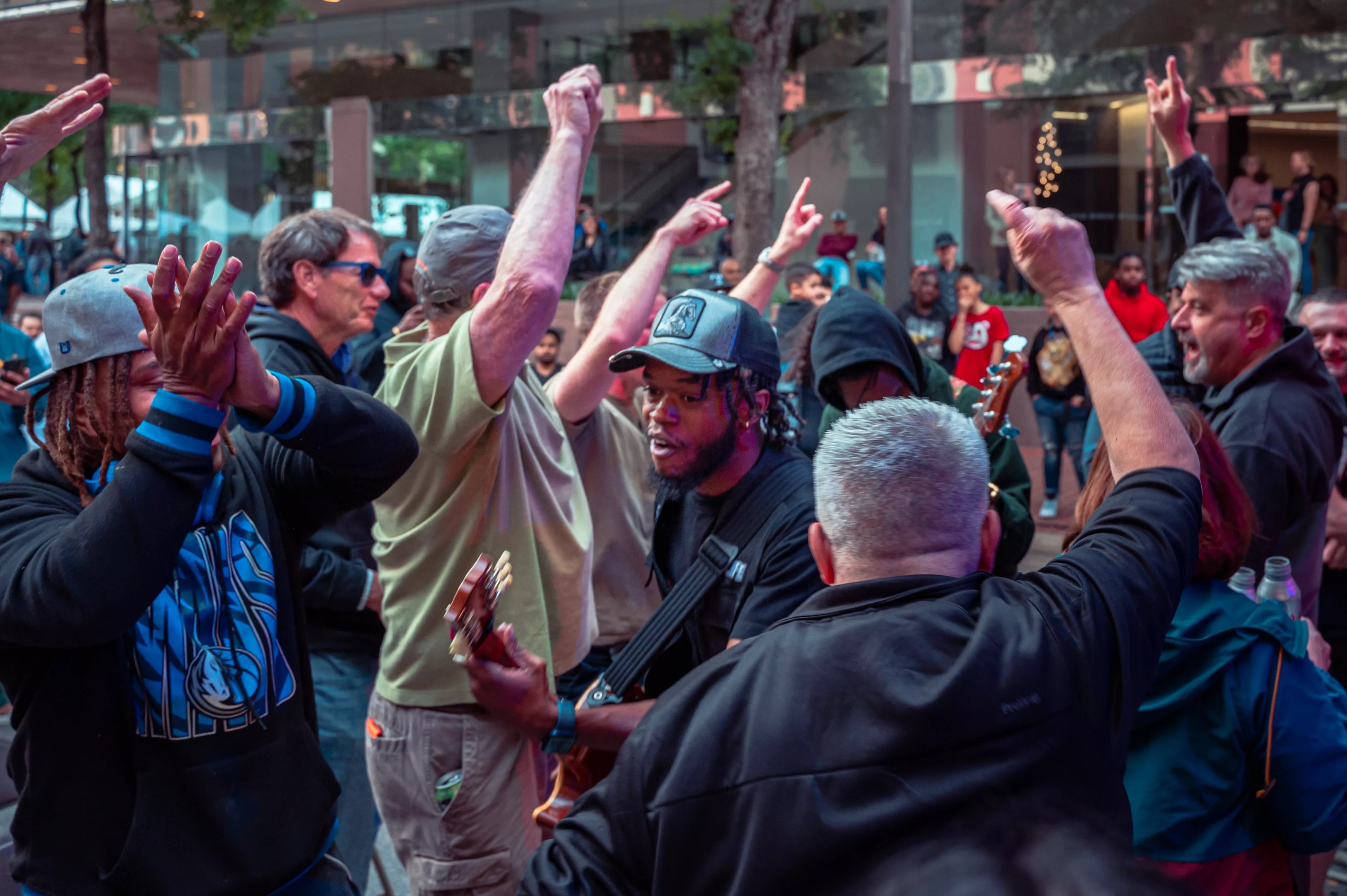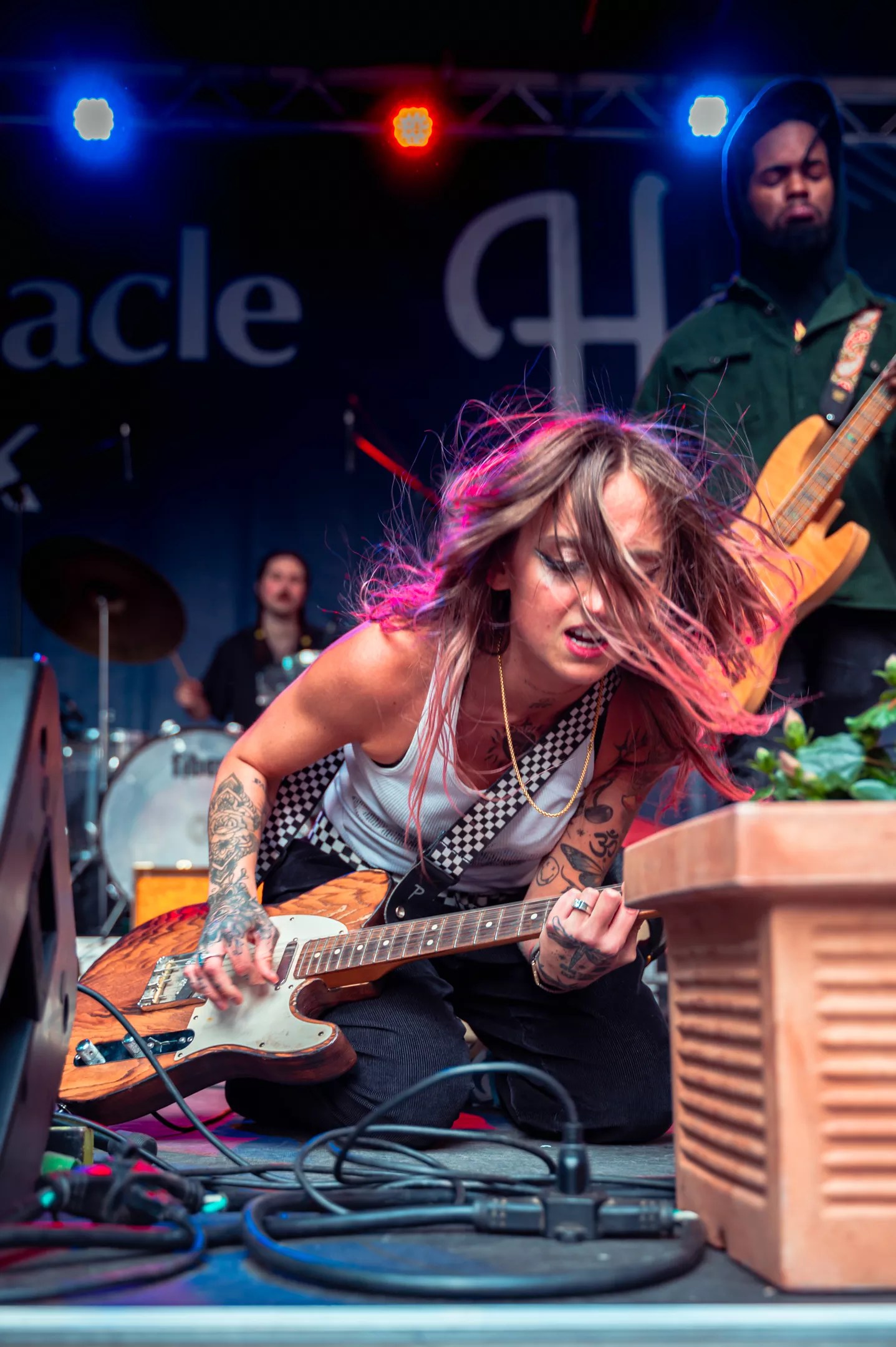
Darah Hubbard

Audio By Carbonatix
Fort Worth has a hot export: musicians. Hear Fort Worth, a program under the Visit Fort Worth umbrella, hopes to make Cowtown a music mecca. And its strategy is simple: build the infrastructure for a music scene to thrive, then let those musicians be the city’s ambassadors.
This transition isn’t an utter transformation. Fort Worth has long boasted musical prowess. From Kelly Clarkson to Leon Bridges to Kirk Franklin, the area has produced some of DFW’s biggest names. It is also the birthplace of western swing, a fusion between jazz, delta blues and frontier fiddle. Hear Fort Worth wants to be the architect for a town that fosters and expands such musical achievement
The program provides grants and hosts monthly mixers, quarterly educational mixers and yearly town halls. It has also organized local musicians to play for city events with the mayor.
“The main thing is to build a music community in Fort Worth. A lot of musicians felt disconnected and felt like there were cliques,” says Tom Martens, associate vice president of creative and branding for Visit Fort Worth and director of the Fort Worth Music Office. “We felt this was a good way to unify the community, so we do a monthly mixer at a different music-friendly location all over Fort Worth.”
The monthly mixers allow people in the music industry to build community and network with venue owners, record labels and other musicians. They often take place at record stores, music venues or other music-related spaces. Along with these mixers, the program hosts quarterly education mixers and yearly town halls to gauge what musicians want.
Hip hop artist Lou Charles got involved with Hear Fort Worth at one of these mixers.
“That’s kinda how our relationship blossomed,” Charles says. “Probably 2017, they had a town hall on a Tuesday afternoon. I just so happened to see it on Instagram, pulled up.” Initially, though, he was skeptical about Hear Fort Worth’s project.
“We try to do cool things … kind of give an education and perspective for newer artists or some artists who are looking for new opportunities.” – Tom Martens, Visit Fort Worth
Charles wanted to know if the program was just for country music or if it also included rap, R&B, punk and everything in between. “I looked around the room and, aside from a couple other people, I was the only person who looked like myself. … Are you just doing this for the stockyards? Fort Worth is much bigger than the stockyards,” he says. “Are you just doing this for music that you would hear down there?”
Martens and Hear Fort Worth aren’t genre-specific, though.
“It’s more how we can elevate the scene,” Martens says. “We are more than just white guys with guitars. There’s an emerging hip hop scene here; there’s some DJ culture that’s happening.”
Charles’ relationship with Hear Fort Worth has since grown as he’s attended monthly mixers, played South by Southwest at the program’s stage and been featured in Fort Worth marketing campaigns.
“My song ‘Take Me Home’ was used one year for their marketing campaign, and the commercial showed in the middle of the World Series, in the middle of the Red River Showdown,” he says. “They’ve definitely been allies. Like, I can’t stress that enough.”

Averi Burk on the Hear Fort Worth Stage, presented by Pinnacle Bank, at the 2023 Fort Worth Main St. Arts Festival.
Darah Hubbard
Charles describes the Fort Worth music scene before Hear Fort Worth as the Wild West, where a musician had no reference point to break in. “We try to do cool things … kind of give an education and perspective for newer artists or some artists who are looking for new opportunities,” Martens says.
More established artists like George Casillas of Squeezebox Bandits, who’s been playing in the Fort Worth area since 1998, have also found a place in this community. In particular, Casillas found the educational mixer on taxes helpful. “I’ve done my taxes every year on time, but … sometimes I have questions,” he says. “She came in and talked about how you can write certain things off. Stuff I didn’t really know about.”
This type of support lays the foundation for creatives to thrive, Hear Fort Worth believes. Music scenes may seem spontaneous, but there is likely an underlying infrastructure enabling those big bang moments we now perceive as historically inevitable. We forget about the automotive-plant-inspired assembly line hits of Detroit’s Motown Records,which produced Smokey Robinson, Marvin Gaye and countless others; or the Brill Building’s ability to put writers and publishers in one New York City room to inspire artists like Carole King; or the ports in Liverpool enabling cross-cultural movement, providing foundational rock ‘n’ roll exposure for that little band out of northern England, The Beatles.
The effort by Hear Fort Worth is direct. The less sexy side to becoming a music capital looks like creating circumstances for a musician to thrive – solid musical infrastructure. This process could mean supporting venue ladders – having venues of varying sizes that give both green and established artists somewhere to play and grow.
The music scene is “coming a long way, I think, with the opening of Dickies Arena and Tannahill’s,” Martens says. “It’s giving us that next stage and capacity size. With The Post [at River East] and Tulips, we’re really kind of building what’s called a venue ladder because you need the small venues to support the big venues.”
The group also offers tour grants, helping musicians get on the road and preventing them from becoming static playing the same DFW venues. Hear Wort Worth takes a pragmatic perspective, realizing the economic realities of the industry. For one, musicians need financial support – exposure doesn’t pay rent.
And, second, musicians produce financial gain. The program understands this after conducting a second economic impact study with the global research consultancy Sound Diplomacy to understand exactly how musicians benefit the Fort Worth economy.
A few years ago, Hear Fort Worth flew country singer-songwriter Summer Dean to Las Vegas. Dean had participated in the program’s events for years, using its tour grants, playing city events and being a designated Fort Worthian musician-ambassador on the road. “They flew me to Vegas for this convention for people that put on conventions, basically, trying to get organizations to come to Fort Worth and have their event in our city,” she says.
As she began her Vegas breakfast gig, the Hear Fort Worth representative explained, in her words, “You can get online and you can see our convention center, you can see our hotels, you can see our parks and our restaurants – everything we have to offer you. But you can’t get online and meet our people and hear our sound, so we brought a few of them here to sing for your breakfast.”
Following that Vegas show, Dean understood that the infrastructure the city provided the music scene was a part of a mutual relationship. In this model, musicians would entice conventions, businesses and tourists to visit Fort Worth by giving charm to the city, something at which music and art excel.
“At first I thought I was helping them. Then, as I would go out and do their events, I realized they were helping me,” Dean says. “I didn’t know any other city who was helping their artists out like this was, just practical help. It makes me just always want to always be from here.”